Bowtie Confidential: What I Expect in 2012 12/28/11
As a consultant who spends many hours flying (or more likely, sitting in airports waiting to fly) to various parts of the country to meet with clients, I have ample time on my hands for reflection. Over the past few weeks, I have reflected on how I have spent my time over the past year in client-related work and where I see my time being spent in 2012.
It is clear that there are three major areas where clients want my help. The first is related to Meaningful Use. Three years ago, these clients were asking for my assistance to select an EMR. Now, they are looking for help with implementation of the system they purchased, system maximization, or the amelioration of some problem that is preventing them from successfully attesting to CMS for Meaningful Use dollars.
The second area is ACOs – should they participate, what they need to do to be successful, what IT will they need in place, etc.
The third area is ICD-10. In this particular area, people would like me to convince the feds that conversion is too expensive, too time consuming, too complicated, too (you fill in your choice of adjectives). For this article I will concentrate on the first two topics; the third I will handle next time (maybe the feds will listen to your cumulative prayers and delay implementation so I will need a different topic).
I have always been fascinated with numbers and thought that I would share some very interesting figures put out by our friends at CMS over the past few weeks. I will also be showing you some interesting factoids related to ACO development.
The first set of statistics is related to Meaningful Use and the incentive payments that have been made thus far. These numbers are supplied by CMS and are current through the end of November 2011.
CMS is on schedule to disperse approximately $2 billion in payments to physicians and hospitals (in their terminology – EPs – eligible providers). More than 155,000 physicians have registered to participate in this program, with a 3:1 ratio of physicians participating in the Medicare program compared to the Medicaid program. From those registered participants, slightly more than 21,000 have completed their attestation.
Think of what this means. Fewer than one in seven physicians who have registered have gone on to the attestation process. There will surely be an attestation stampede in 2012 with the final date for qualifying for full first year funding being October 1, only 90 days prior to the end of calendar year 2012. I think that it is safe to predict that tens of thousands of physicians will be submitting their attestation in the second half of 2012. What does this mean for payment speed to these providers? Your guess is as good as mine.
From the 21,000 physicians who have submitted their attestation, 444 were unsuccessful. This says something very positive about the early adopters. On the hospital side, 769 hospitals completed attestation and not one was unsuccessful.
One last set of statistics that may be of interest to you: from the entire universe of physicians, the number of physicians who have registered is 28%. This is 5% less than the generally accepted EMR adoption rate of 33%. On the hospital side, 58% of all hospitals have registered to participate in this program.
According to a recent survey by UnitedHealth Group, only 60% of physicians know what an ACO is. From this group, 28% indicated that they were considering joining/forming an ACO. That translates into the fact that less than 20% of the physicians surveyed are planning to participate in an ACO in some way.
A study by Leavitt Partners indicates that there are 164 identified ACOs spread across 41 states. The states with the most ACOs are CA, MI, OH, TX and WI. States with the no ACOs include AL, AK, AR, DE, DC, ID, KS, MS, NV, ND, RI, VT and WV. These ACOs are being sponsored by hospitals, hospital systems, insurers, joint ventures between insurers and hospitals/hospital systems, etc. Nearly 100 of these ACOs are sponsored by hospital systems, 38 by medical groups, and 27 by insurers.
As I mentioned, multiple physician and hospital organizations are asking me, “Should we participate in an ACO?” My response is usually the same – look at the competitive marketplace, ask yourself if you have several million in cash sitting around collecting dust, an underutilized IT shop, etc. What is your relationship with the medical staff, or conversely, the hospital CEO – do you trust each other to be business partners going forward? Where are you going to find real-time case management services?
The decision to participate in an ACO is a serious and far-reaching decision. Have you done your economic, political, and organizational homework to maximize your chances of success?
Unless you can answer affirmatively to all of these questions, I would be extremely cautious about moving forward.
I spent a part of my afternoon today speaking with a financial analyst from one of Wall Street’s best-known firms (yes, there are still a couple of them still around). The topic of conversation was how quickly will ACOs grow and what will their market penetration be in 2016.
This individual had no doubt that ACOs are here to stay and wanted to know which model would be the dominant player in five years. I tried to explain to him that his view was not a sure thing; that providers are, in most ways, risk averse. Telling a Wall Street venture capitalist that someone is risk averse is not a pleasant thing to do.
I rattled off the usual litany of issues – that of the nine original demonstration projects only one (Marshfield) made a reasonable profit for their efforts. That it was going to be hard enough for physicians to partner with hospitals, but for physicians and hospitals to partner with insurance companies might still be a stretch. That the level of capital that needed to be invested to make ACOs truly functional is unreachable for most provider organizations that I work with, etc.
I don’t think that I was successful in getting my point across. He explained that “The Street” saw this as the next big thing. For anyone who has had their retirement plans delayed or have had to continue working to pay for their kids college, betting on Wall Street’s vision of the ‘next big thing’ should be interesting, to say the least.
Don Michaels, PhD is vice president, strategic and advisory services, for Hayes Management Consulting and teaches healthcare IT for the Harvard School of Public Health.

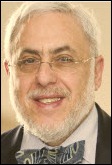



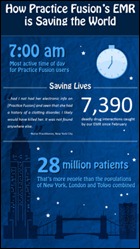
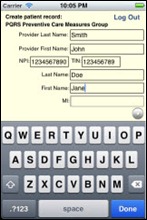
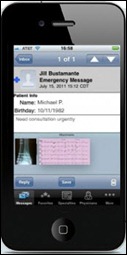
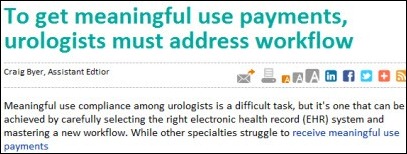




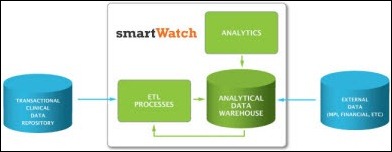
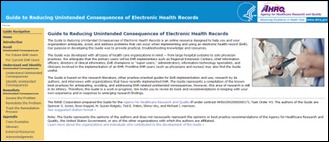
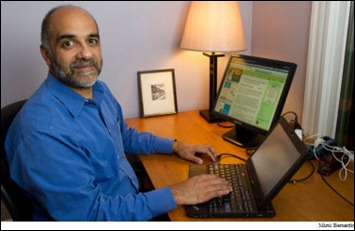
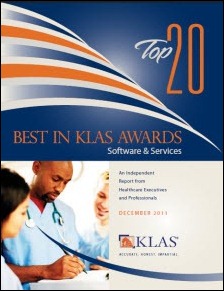





Re: Walmart Health: Just had a great dental visit this morning, which was preceded by helpful reminders from Epic, and…